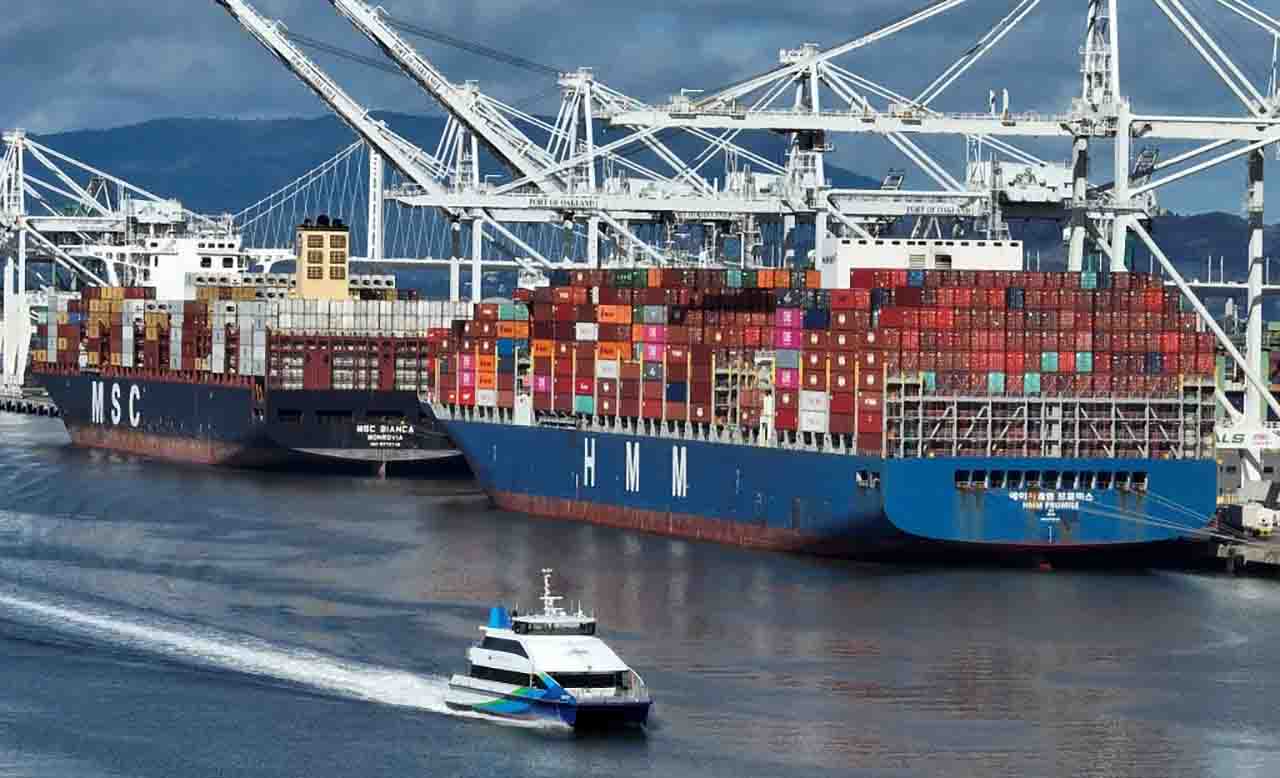(Commonwealth) _ The shipping industry is one of the most critical components of global trade and commerce, responsible for transporting more than 80% of global trade volume. However, this industry is also one of the most significant sources of greenhouse gas emissions, contributing about 2.5% of the world’s total carbon dioxide emissions. This presents a significant challenge for countries like Britain that have committed to achieving net-zero emissions by 2050.
To achieve this ambitious goal, the shipping industry must make significant changes, including the adoption of cleaner fuels, improved energy efficiency, and new technologies. But more importantly, it will require concerted investments and strategies by the government and industry stakeholders.
According to research conducted by Maritime UK, an industry-led body representing the UK’s maritime sector, Britain must invest £1 billion annually to meet its 2050 net-zero shipping goal. The report also highlighted the need for a comprehensive strategy to support the industry’s transition to a low-carbon future.
One of the key challenges facing the shipping industry is the lack of available low-carbon fuels. While there are several options under development, such as biofuels, hydrogen, and ammonia, they are still in the early stages of development and are not yet widely available. This means that shipping companies must rely on traditional fossil fuels, which emit high levels of carbon dioxide.
To address this challenge, the UK government has announced several initiatives to support the development of low-carbon fuels, including the £20 million Clean Maritime Demonstration Competition, which aims to support the development of innovative low-carbon technologies.
Another critical factor is improving the energy efficiency of ships. Energy efficiency measures can help reduce emissions and improve the industry’s economic performance. Initiatives such as slow steaming, which involves reducing the speed of ships, and improved hull design can help reduce fuel consumption and emissions.
Additionally, the use of digital technologies, such as predictive maintenance and real-time monitoring, can help optimize energy efficiency and reduce emissions. The UK government has already introduced regulations to encourage the use of digital technologies in the shipping industry.
However, achieving net-zero emissions will require more than just incremental improvements. It will require the development and adoption of new technologies, such as electric and hydrogen-powered ships. These technologies are still in the early stages of development, but they offer significant potential for reducing emissions.
The Maritime UK report highlights the need for a comprehensive strategy to support the industry’s transition to a low-carbon future. This strategy should include measures to encourage the adoption of low-carbon technologies, support for research and development, and investment in infrastructure such as port facilities for charging and refueling.
Furthermore, the report calls for a coordinated approach between government and industry stakeholders. The government must provide clear policy signals to encourage investment in low-carbon technologies, while industry stakeholders must work together to develop and implement these technologies.
The shipping industry is a critical component of global trade and commerce, but it is also a significant contributor to greenhouse gas emissions. Achieving net-zero emissions by 2050 will require concerted investments and strategies by the government and industry stakeholders. The UK government has already taken several steps to support the industry’s transition to a low-carbon future, including the introduction of regulations to encourage the use of digital technologies and the development of low-carbon fuels. However, more needs to be done, including the adoption of new technologies such as electric and hydrogen-powered ships.
The Maritime UK report highlights the need for a comprehensive strategy to support the industry’s transition to a low-carbon future. This strategy should include measures to encourage the adoption of low-carbon technologies, support for research and development, and investment in infrastructure such as port facilities for charging and refueling.








